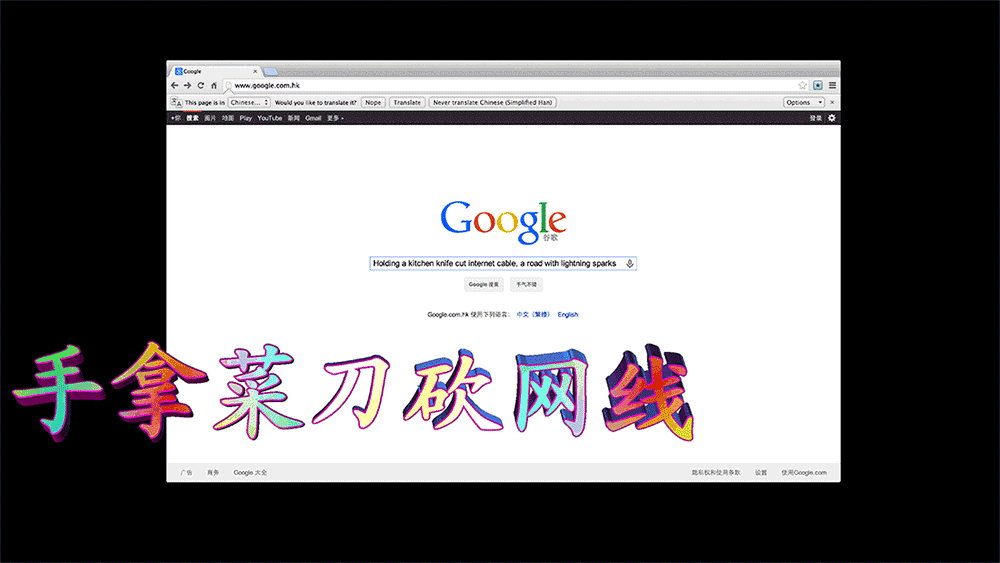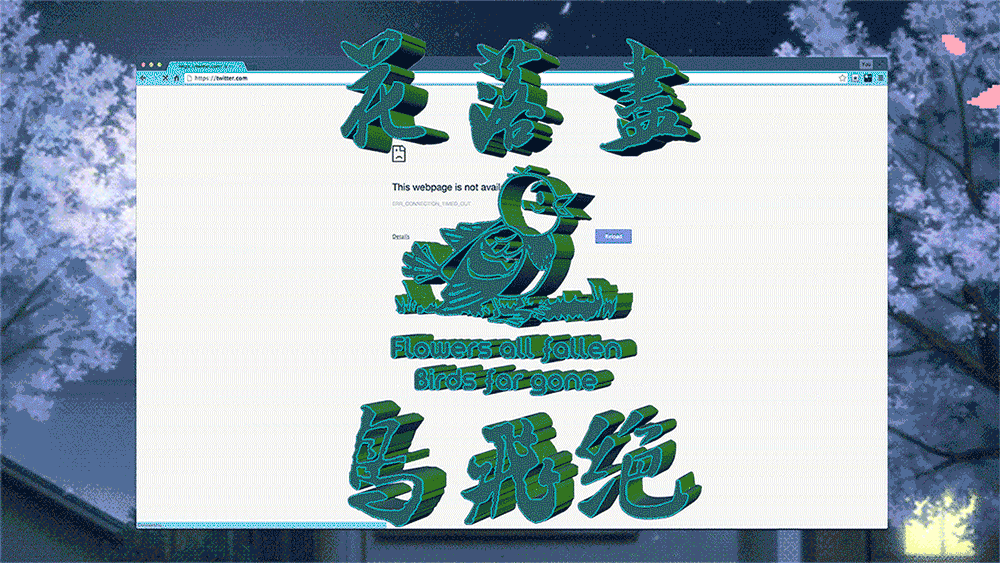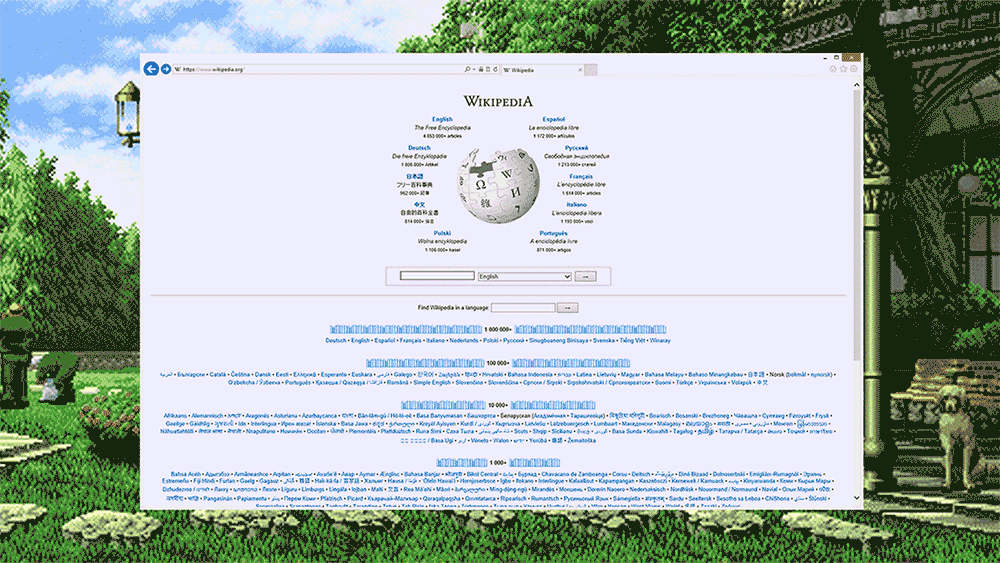
Miao Ying’s “Holding a kitchen knife cut internet cable, a road with lightning sparks”, 2014, gif animation.
As a net art trope, the desktop GIF is an obvious reflexive gesture: a portrait of the artist as an array of tabbed browsing, or a portrait of the artist as their in medias res studio softwares. But in Miao Ying’s “LAN Love Poem.gif” series, the artist is seemingly absent from the desktop: it’s the typical Chinese local area network user encounter with a blocked website, imbued with an unsettling sentimentalism via kitschy Baido-found translated Chinese internet poetry. The overwrought feelings dominate, and true to its literary mode, ultimately access a greater truth—the artist’s own love-hate relationship with China’s Great Firewall.
“Censorship is like a nasty boyfriend/girlfriend you cannot tame,” divulges Ling in a recent interview with Rhizome’s Iona Whittaker. “It’s even worst than that; it’s actually more like developing Stockholm syndrome—a traumatic bonding. This kind of love takes place in an isolated environment where the hostage-taker—who makes the rules—becomes so powerful that you gradually fall in love with them.”
The snapshots of sites vary, but there’s such a direct sentiment between the snapshot and the translated signatures of Chinese internet users, done in Taobao-inspired 3D animated style lettering. (Taobao is China’s equivalent of eBay.) In “Flowers all fallen, Birds far gone”, the combination of falling floral petals and stretched long shadows spin and rotate in front of the blocked Twitter page. The silhouette of the service’s blue bird mascot further drives home the literal message: the tweets are silent and this bird has flown.
Meanwhile, “Why Tokyo Rain Wet Paris?” captures Chinglish translation barriers. The Wikipedia page appears in front of the background of an 8-bit sunshine garden scene, but when the Chinese option is clicked, hits a “can’t be displayed” page. The 8-bit background darkens with rain, and the oddly poetic jumbled translation floats across in a slick cursive. The phrase, according to Ros Holmes, a Junior Research Fellow in Art History at Oxford University, embody a “visual non sequitur”: “an unexpected collision of appropriated visuals that appear simultaneously absurd, comical and deliberately unsophisticated, evincing the artist’s interest in aesthetics that celebrate the low-tech and whimsical nature of the Chinese internet.”
Ling recently had a solo exhibition at the Chronus Art Centre (CAC) in Shanghai, which was an online project that was part of the Chinese Pavilion at the Venice Biennale.




Comments on this entry are closed.